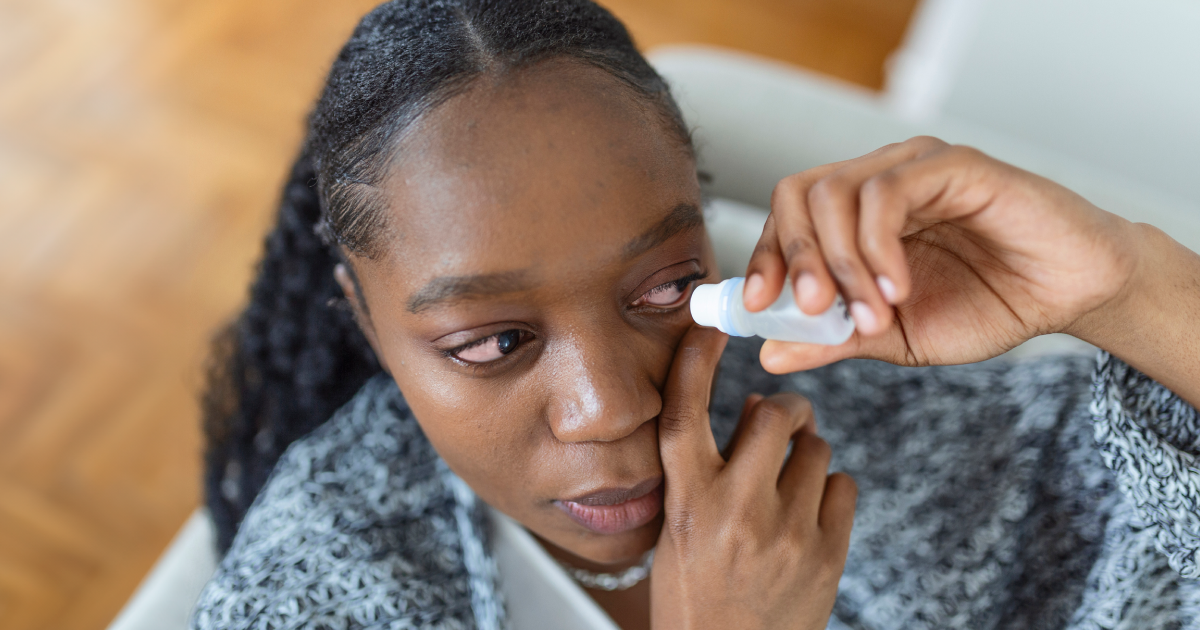
Keep an eye out for pink eye. It’s highly contagious and not just for kids.
Pink eye is especially prevalent in kids or children and the most common reason for absences in school-age children. But, pink eye is so highly contagious that anyone can get it, including adults. Approximately 6 million people of all ages seek medical care for pink eye each year.
So, what is pink eye? Pink eye, also known as conjunctivitis, is an infection in the thin, transparent membrane (conjunctiva) that protects your eyes and eyelids. The infection can last from 10-14 days, making kids and adults equally miserable.
Read on to learn the symptoms of pink eye, why it’s so contagious, prevention tips, and when to seek medical care at vybe.
When your eyes are irritated, it’s easy to automatically assume you have allergies, especially during certain times of the year. Both pink eye and allergies typically cause a visible pink or red color, itchiness, and discomfort.
However, pink eye and allergies also have distinctive symptoms that can help you tell them apart – and it’s important to know which is which, since both conditions are treated differently.
Pink eye symptoms:
Allergy symptoms:
When in doubt, head to your nearest vybe for a professional diagnosis of pink eye vs. allergies, so you can begin the right treatment promptly.
Pink eye is highly contagious and can be caused by viruses, bacteria and allergens. It can be easily spread through:
One of the many viruses that can infect the conjunctiva is the same virus that causes the common cold – and we all know how frequently colds get around.
Since young kids often don’t always have the best hygiene habits, it’s up to adults to help limit the spread of germs. Kids are often exposed to shared items in schools and daycares ,increasing the spread of germs. When kids bring these germs home, adults can help provide precautions to stop the spread.
All hope is not lost. There are many things you can do to prevent the spread of pink eye, including:
While most cases of pink eye eventually go away on their own, vybe can prescribe a variety of prescription drops and ointments to manage discomfort and speed up the healing process. We treat pink eye patients of all ages.
The most common treatment for bacterial pink eye is antibiotic eye drops. The drops work best when they are used as follows:
If you or your child do not handle eye drops well, ask your vybe provider about antibiotic ointments.
Viral pink eye, which makes up for the majority of cases, is caused by a virus and not a bacteria, antibiotics are not a treatment option. But, the good news is that viral pink eye usually lasts a week or less. It is advised to avoid wearing contact lenses during this time. vybe can also recommend over-the-counter treatments to help reduce your symptoms, such as warm compresses and pain relievers. If you are still experiencing symptoms, your symptoms worsen, or you begin to have impaired vision, visit your nearest vybe right away.
Yes, pink eye is very contagious – but it’s also manageable. Be sure to use this helpful information to know what to look out for, how it spreads and when to seek medical care for pink eye.
Have symptoms of pink eye? vybe is open seven days a week with extended weeknight hours, and we accept both walk-ins and appointments for your convenience. Find a vybe urgent care in your neighborhood today!
FIND YOUR VYBE